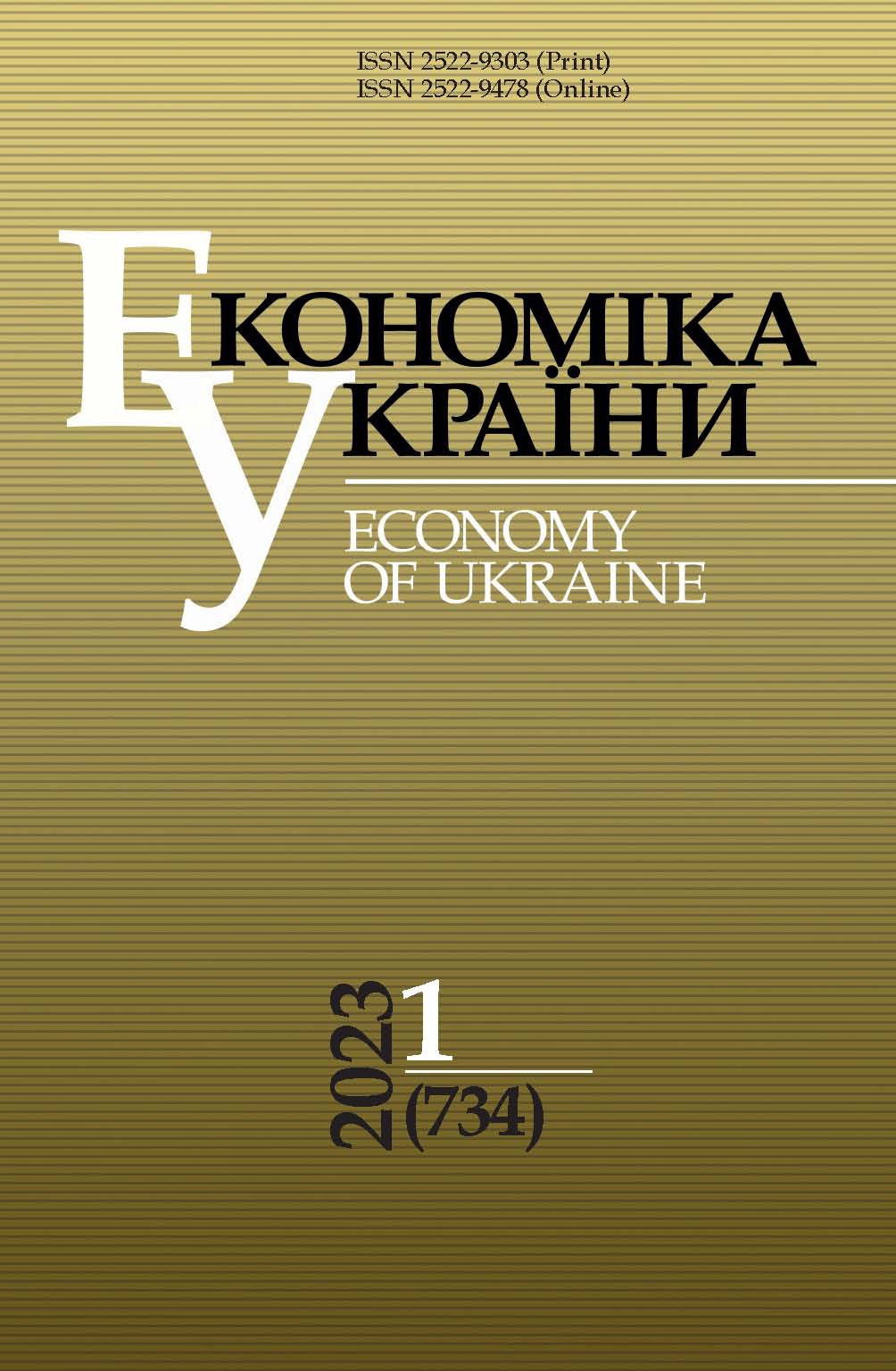THE STATE’S FINANCIAL RESOURCES MANAGEMENT UNDER MARTIAL LAW
DOI:
https://doi.org/10.15407/economyukr.2023.01.020Keywords:
state budget; local budgets; consolidated budget; budget expenditures; deficit; state debt; financial resourcesAbstract
The legislative, normative legal acts adopted during martial law, which regulate the filling of budgets and using financial resources, are analyzed. It is established that in September 2022, compared to March, the deficit of the consolidated and state budgets increased several times.
The analysis of the sources and structure of revenues and directions of state and local budgets spending for the nine months of 2022 by areas, including the study of budget programs, showed that most of the state budget expenditures were made on the country's defense, social security of the population, performing the main functions of the state, in particular, the public order maintenance, security and the exercise of powers by the judicial branch of government. Local budgets are entrusted with ensuring the educational process and financing the entire housing and communal services sector of the country.
To increase significantly the efficiency and effectiveness of the use of state financial resources, it is proposed to introduce new methodological and organizational approaches in budget expenditures management. It is noted that in wartime, old organizational forms, methodological approaches are not applicable, because they not only fail to meet the requirements of market relations, including in terms of ensuring the efficiency of management and use of financial resources, but also remain a factor of danger, deformation of task performance in entire state management system. In this situation, there is an opportunity to start reforms, to apply more effective methods, principles, and means of methodological and organizational support for the activities of each government-funded, and not only such, institution and organization. This applies to both the main manager of budget funds and the manager of a lower level, recipients of budget funds, that is, from the ministry to any other institution or organization for the purpose of designing a new organizational management system based on a systemic approach to management and use of budget expenditures to improve the efficiency of using financial resources, increase the effectiveness of state's financial, budgetary and economic policy.
References
Theory of Finance. V.M. Fedosov, S.I. Yuriy (Eds). Kyiv, 2010 [in Ukrainian].
Pavlyuk K.V. Financial resources of the state. Kyiv, 2010 [in Ukrainian].
Koval Yu. Financial resources of the state as a basis for the formation of state budget revenues. Ukrainian science: past, present, future, 2012, Vol. 17, pp. 57-63. URL: http://library.wunu.edu.ua/images/stories/naukovi%20zhurnaly/ukrainska%20nauka/2012/ukrnauka_17_2012.pdf [in Ukrainian].
Vasylyk O.D. Theory of Finance. Kyiv, 2003 [in Ukrainian].
Zahorodniy A.H., Voznyuk H.L. Financial and economic dictionary. Lviv, 2005 [in Ukrainian].
Kucher H.V. State financial resources. Kyiv, 2018 [in Ukrainian].
Nieizviestna O., Hryhoruk A., Lytvyn L. Modern instruments for supporting the financial stability of Ukraine in conditions of wartime. Economy and Society, 2022, Vol. 39. URL: http://dspace.tnpu.edu.ua/bitstream/123456789/26285/1/ertyui.pdf [in Ukrainian].
Radionov Yu. Public finance in ensuring stability of the country’s financial system. Economy of Ukraine, 2022, No. 9, pp. 77-98 [in Ukrainian].
Zahorskyi V. Debt policy: concepts and realities. Economist, 2006, pp. 24-26 [in Ukrainian].
Mazaraki A.A., Melnyk T.M., Yukhymenko V.V. et al. Economic sovereignty of Ukraine. Kyiv, 2015 [in Ukrainian].
Radionov Yu.D. Methodological and organizational approaches to ensure the efficiency of management and use of budget expenditures. Finance of Ukraine, 2022, No. 5, pp. 7-28 [in Ukrainian].
Downloads
Published
How to Cite
Issue
Section
License
Copyright (c) 2023 Publisher PH "Academperiodyka" of the NAS of Ukraine

This work is licensed under a Creative Commons Attribution-NonCommercial-NoDerivatives 4.0 International License.



